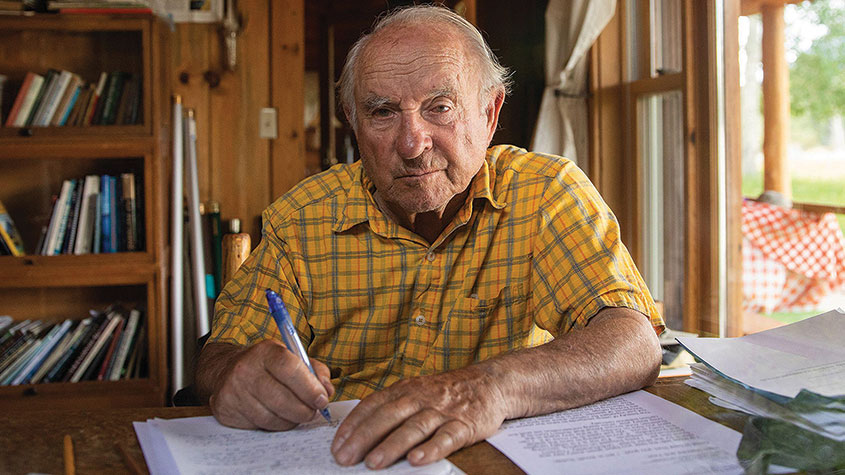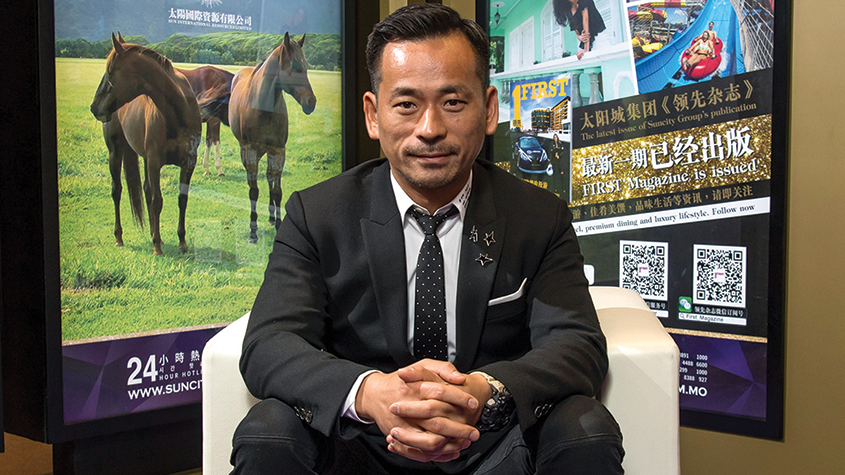Great frauds in history: Allen Chan of Sino-Forest
Allen Chan fooled many investors by falsifying the accounts of his Canadian-listed Chinese forestry company.

Get the latest financial news, insights and expert analysis from our award-winning MoneyWeek team, to help you understand what really matters when it comes to your finances.
You are now subscribed
Your newsletter sign-up was successful
Want to add more newsletters?
Allen Chan was born in Hong Kong and graduated with a degree in sociology from Hong Kong Baptist College in 1978. He started working life in Hong Kong’s town development and planning department, and went on to take a job in 1984 as a project consultant in the “special economic zone” of Shenzhen, taking advantage of China’s early wave of economic reforms. After attending the 1992 United Nations’ Earth Summit in Rio, Chan become interested in forestry and went on to found Sino-Wood in 1993, which would be merged into Sino-Forest Corporation a year later, with Chan as its chief executive.
What was the scam?
Sino-Forest, which was listed on the Canadian stock exchange in Toronto from 1995 onwards, promised investors that it would make money from a forestry portfolio by acquiring and then running Chinese tree plantations, or by selling them on at a profit to other companies. Sino-Forest’s management invented a huge number of phoney transactions, however, including 450 in the first quarter of 2009, to inflate its profits and revenues. The impression of soaring profits caused Sino-Forest’s shares to surge 540% between 2003 and 2011, giving the firm a peak market capitalisation of C$6bn (roughly US$4.2bn at current exchange rates).
What happened next?
In June 2011 an activist group of short-sellers, Muddy Waters, published a research paper that claimed Sino-Forest’s management was misleading investors and the company was a “near total fraud”. Chan initially denied the allegations, but he resigned as CEO a few months later after the Ontario Securities Commission, the Canadian regulator, suspended trading in Sino-Forest’s shares, which had already collapsed in value. The next year Sino-Forest filed for bankruptcy. In 2017 the Commission ruled that Chan, and several other directors, had indeed committed fraud, a decision that was subsequently upheld in the Canadian courts.
Try 6 free issues of MoneyWeek today
Get unparalleled financial insight, analysis and expert opinion you can profit from.

Sign up to Money Morning
Don't miss the latest investment and personal finances news, market analysis, plus money-saving tips with our free twice-daily newsletter
Don't miss the latest investment and personal finances news, market analysis, plus money-saving tips with our free twice-daily newsletter
Lessons for investors
Chan managed to escape criminal prosecution, due to the difficulty of extraditing him to Canada, and Sino-Forest’s investors were wiped out in the bankruptcy. One of those investors was John Paulson’s hedge fund, which injected $500m into the company before it collapsed. Short-sellers such as Muddy Waters, which publish negative research about the companies that they short (ie, bet against) are controversial, but they have a good record of exposing fraud. Sino-Forest’s shares plunged 60% when the scandal broke, but those who listened to the shorts and immediately sold out would at least have recovered something.
Get the latest financial news, insights and expert analysis from our award-winning MoneyWeek team, to help you understand what really matters when it comes to your finances.

-
 The rare books which are selling for thousands
The rare books which are selling for thousandsRare books have been given a boost by the film Wuthering Heights. So how much are they really selling for?
-
 Pensions vs savings accounts: which is better for building wealth?
Pensions vs savings accounts: which is better for building wealth?Savings accounts with inflation-beating interest rates are a safe place to grow your money, but could you get bigger gains by putting your cash into a pension?
-
 VICE bankruptcy: how did it happen?
VICE bankruptcy: how did it happen?Was the VICE bankruptcy inevitable? We look into how the once multibillion-dollar came crashing down.
-
 What is Warren Buffett’s net worth?
What is Warren Buffett’s net worth?Warren Buffett, sometimes referred to as the “Oracle of Omaha”, is considered one of the most successful investors of all time. How did he make his billions?
-
 Kwasi Kwarteng: the leading light of the Tory right
Kwasi Kwarteng: the leading light of the Tory rightProfiles Kwasi Kwarteng, who studied 17th-century currency policy for his doctoral thesis, has always had a keen interest in economic crises. Now he is in one of his own making
-
 Yvon Chouinard: The billionaire “dirtbag” who's giving it all away
Yvon Chouinard: The billionaire “dirtbag” who's giving it all awayProfiles Outdoor-equipment retailer Yvon Chouinard is the latest in a line of rich benefactors to shun personal aggrandisement in favour of worthy causes.
-
 Johann Rupert: the Warren Buffett of luxury goods
Johann Rupert: the Warren Buffett of luxury goodsProfiles Johann Rupert, the presiding boss of Swiss luxury group Richemont, has seen off a challenge to his authority by a hedge fund. But his trials are not over yet.
-
 Profile: the fall of Alvin Chau, Macau’s junket king
Profile: the fall of Alvin Chau, Macau’s junket kingProfiles Alvin Chau made a fortune catering for Chinese gamblers as the authorities turned a blind eye. Now he’s on trial for illegal cross-border gambling, fraud and money laundering.
-
 Ryan Cohen: the “meme king” who sparked a frenzy
Ryan Cohen: the “meme king” who sparked a frenzyProfiles Ryan Cohen was credited with saving a clapped-out videogames retailer with little more than a knack for whipping up a social-media storm. But his latest intervention has backfired.
-
 The rise of Gautam Adani, Asia’s richest man
The rise of Gautam Adani, Asia’s richest manProfiles India’s Gautam Adani started working life as an exporter and hit the big time when he moved into infrastructure. Political connections have been useful – but are a double-edged sword.